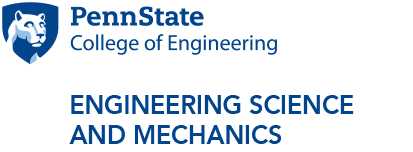Tribology is a wearing experience
Abstract: Lubrication, friction and wear are the primary components of the field of Tribology and are featured during surface interactions. After a brief overview of Tribology, an unlikely phenomenon will be discussed in which a “soft” material causes damage to a “harder” surface during the fabrication of integrated circuits (ICs) using a typical microelectronics process called chemical-mechanical planarization (CMP). Your cell phone, tablet, laptop and ipad all have them: they are the ICs fabricated using CMP. The tribological process appears simple: a “soft” viscoelastic pad is used to purposely polish, through wearing, an uneven “harder” wafer surface containing nanoscale features from patterned layers of deposited materials. Multiple layers of the patterned conducting and insulating harder materials are added on top of previous layers until the IC is complete. In between each layer, CMP is employed. The CMP process can cause scratching of the wafer surface during the polishing or planarization. These scratches have been seen to be an order of magnitude or more larger than the nanoscale features themselves, reducing the manufacturing yield of IC components. A continuum mechanics-based description of the mechanisms of the tribological wear and subsequent damage of the wafer surfaces by the viscoelastic pad will be presented, along with a mathematical model and experimental results. The constructed thermomechanical model provides a means to track the input energy dissipation influencing scratch production.
Bio: Donna Meyer completed her doctoral degree in 1999 in Mechanical Engineering from Rensselaer Polytechnic Institute, Troy, NY, under the guidance of Prof. John Tichy. Previously she obtained the B.S. degree in 1993 in Mechanical Engineering from the University of Hartford, West Hartford, CT. She has 15 years of industry experience, three years with Windsor Manufacturing, Windsor, CT and twelve years as a Nuclear Engineer with ABB Combustion Engineering, Windsor, Ct. Her previous faculty position was at Virginia Commonwealth University (VCU) in Richmond, VA in the Department of Mechanical Engineering. She has been on the Mechanical Engineering faculty at the University of Rhode Island (URI), in Kingston, RI since 2002. Prof. Meyer’s research makes use of experiments and analytical models for all types of materials in the areas of continuum mechanics to solve real-world engineering problems. Tribological problems related to contact mechanics and dissipative processes are of special interest. She directs the Thermomechanics Laboratory at URL: https://web.uri.edu/thermomechanicslab/ .
Additional Information:
Please contact Lisa Spicer at lms8@psu.edu for Zoom information.
Event Contact: Lisa Spicer



